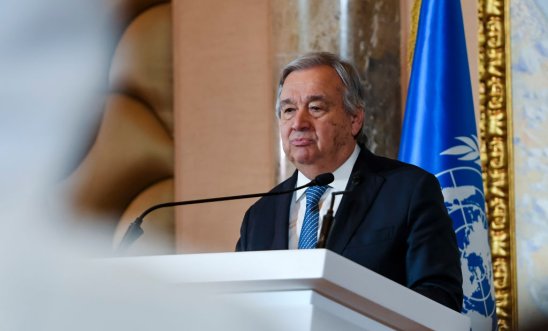
Press releases
Global: Women's and girls' rights in Afghanistan must be a priority at UN-hosted Doha meeting

Upcoming meeting is the third in the multiple rounds of UN-hosted talks on Afghanistan in the last year
‘The rights of women and girls in Afghanistan are non-negotiable’ - Agnès Callamard
Ahead of the third UN-convened meeting on Afghanistan taking place in Doha on 30 June and 1 July, Agnès Callamard, Amnesty International’s Secretary General, said:
“The credibility of this meeting will be in tatters if it doesn’t adequately address the human rights crisis in Afghanistan and fails to involve Afghan women human rights defenders and other relevant stakeholders from Afghan civil society.
“Sidelining critical discussions on human rights would be unacceptable and set a deeply damaging precedent. Caving into Taliban’s conditions to secure their participation in the talks would risk legitimising their gender-based, institutionalised system of oppression – a system that has sought to erase women and girls from society by callously stripping them of their most fundamental rights
“The international community must adopt a clear and united stance: the rights of women and girls in Afghanistan are non-negotiable. They must be at the heart of the UN-convened meeting in Doha which should result in their restoration.”
Meeting in Doha
The upcoming Doha meeting is the third in the multiple rounds of UN-hosted talks on Afghanistan in the last year. The Taliban was not included in the first set of talks in May 2023 and then refused an invitation to the second round in February this year.
On 6 June, Amnesty joined 10 other organisations in a letter to the UN Security Council and Member States urging them to ensure that women’s rights are central to all discussions in the upcoming meeting in Doha. It also urged Member States to avoid normalisation or legitimisation of the Taliban until there is demonstrated, measurable and independently verified progress on all human rights, especially women’s rights, along with bringing all those suspected of criminal responsibility for crimes under international law and human rights violations to justice in fair trials.
The UN Special Rapporteur on Afghanistan in his recent report described the Taliban’s system of discrimination against women and girls as ‘pervasive and methodical’. There is also a growing global campaign fronted by Afghan women to codify gender apartheid in international law, which Amnesty recently joined.